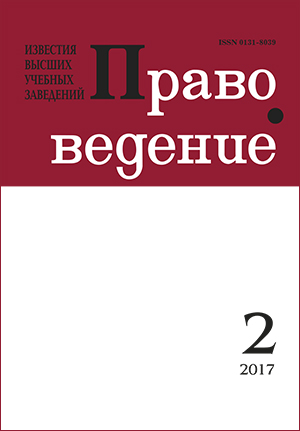Пределы уголовно-правового регулирования в Таиланде и Китае: сравнительно–правовой анализ
Аннотация
Предыдущие исследования рассматривали общие части уголовного законодательства Таиланда и Китая либо в контексте изучения конкретных правонарушений, либо с целью проследить развитие национальных систем уголовного законодательства в исторической динамике. В этом исследовании предпринята попытка проанализировать основные принципы уголовного законодательства этих стран в рамках различных теорий юридического мышления. Консеквенциалистские теории определяют уголовное преступление, принимая во внимание социальные последствия либо результаты определеннoгo действия или бездействия. Неконсеквенциалистские теории носят деонтологический характер, утверждая, что некоторые преступления являются злодеяниями сами по себе и до такой степени, что преступники заслуживают наказания, независимо от их социальных последствий. Уголовнoе право Таиланда и Китая выражаeт, в различной степени, консеквенциалистский тип юридического мышления, который усиливает авторитарные тенденции политической жизни. В статье аргументируется, что криминализация имеет определенные пределы, которые имеют неконсеквенциалистский характер. Их нарушение не только ведет к нарушениям естественных прав, но и приведет к ситуации, которую можно точно охарактеризовать как «рак права»: неконтролируемому росту законодательства, ведущему к уничтожению естественных связей, которые объединяют людей в политическую общность. В этом контексте идея естественного права приобретает большое значение и важность.
Ключевые слова:
уголовное право, Таиланд, Китай, естественное право, позитивное право, криминализация
Скачивания
Библиографические ссылки
Загрузки
Опубликован
Как цитировать
Выпуск
Раздел
Лицензия
Статьи журнала «Правоведение» находятся в открытом доступе и распространяются в соответствии с условиями Лицензионного Договора с Санкт-Петербургским государственным университетом, который бесплатно предоставляет авторам неограниченное распространение и самостоятельное архивирование.




